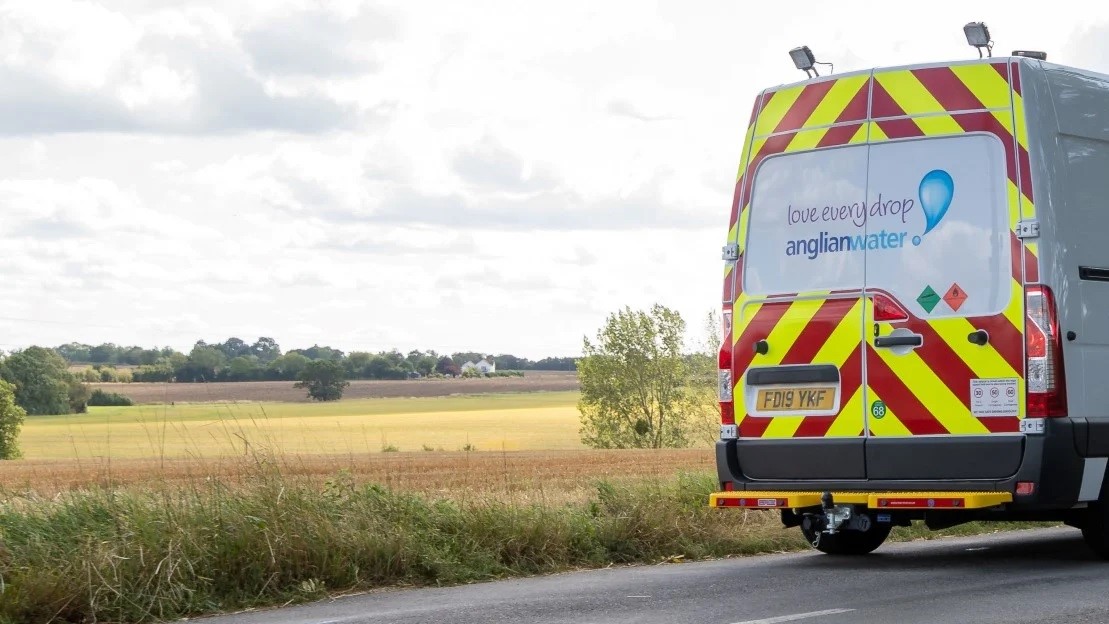Anglian Water has unveiled proposals to create 26 new treatment wetlands across the East of England as part of an ambitious programme of work, which will help protect rivers and some of the much-loved chalk stream habitats in the East of England.
The initiative forms part of Anglian’s recently-launched Get River Positive commitment in which the company has pledged work to restore river habitats across the region
Get River Positive was launched by Anglian Water and Severn Trent earlier this year. The plan includes five pledges to transform river water quality across their regions, and demonstrates a clear and actionable response to calls for a revival of rivers in England. Central to the pledges is a commitment that work carried out by the two water companies will ensure storm overflows and sewage treatment works do not harm rivers.
In total the wetlands programme will see the water company invest over £50million between now and the end of the decade in the work, with the first three wetlands near Charsfield, Cotton (both in Suffolk), and Stagsden (Bedfordshire) planned to get underway early in 2023.
The remaining 23 are in the final stages of feasibility work to identify the most suitable locations available to benefit the environment. The first three will be delivered in partnership with environmental engineering experts across the region.
The wetland projects will be modelled on Anglian Water’s flagship River Ingol wetland which it launched in 2019. The site, near Ingoldisthorpe, in Norfolk was the first of its kind in England. Created in partnership with the Norfolk Rivers Trust, the wetland has since operated as a natural treatment plant for millions of litres of water, as well becoming a beautiful habitat and a flourishing haven for wildlife.
With East Anglia the fastest growing region in the UK, the wetlands initiative is a major step forward to improving resilience through the power of nature without the need for carbon-hungry infrastructure and additional chemical usage.
Dr Robin Price, Director of Quality and the Environment for Anglian Water said: “This is a hugely ambitious programme, the scale of which has never before been delivered by a water company in the UK.
“Our wetland programme at Ingoldisthorpe has provided a blueprint which we can now roll out across the region. Nature-based solutions are a key part of our vision for the future: not only providing vital services to our customers and meeting the demands of our ever growing population, but doing so in a way that benefits, wildlife, the environment and local communities too.”
Mark Lloyd, Chief Executive of the Rivers said: “We are delighted to see Anglian Water’s ambition to deliver improved water quality while at the same time providing space for nature, local amenity, and helping to reduce carbon emissions. This very welcome focus on nature-based solutions provides so many more benefits for society than traditional water treatment processes, which only have one output. The Rivers Trust movement looks forward to working in partnership with Anglian Water to help make these ambitious plans a reality.”
Treatment wetlands work by taking used but treated water from water recycling centres and passing it through a series of interconnected ponds planted with native wetland species such as iris, sedges, rush, marsh marigold and watercress.
The wetland plants naturally clean the water, removing ammonia and phosphate before it goes back into the nearby river. Although Anglian Water’s existing water recycling processes already remove the majority of these substances in line with tight environmental permits issued by the Environment Agency, the wetlands work to treat the water even further, removing the need for expensive, carbon-intensive infrastructure and the chemical dosing which is conventionally used.
Not only do the wetlands have a practical purpose, they are a huge biodiversity asset and attract lots of local wildlife. In 2019, the water company and local primary school held a bio-blitz their site on the Ingol and found over 200 species of plants, animals and insects including a large variety of butterflies, dragonflies and other aquatic invertebrates, yellowhammers and spotted flycatchers. Footage of a water vole was also recorded using trail cams.
Robin added: “We know this work will have a significant and positive impact on our river’s biodiversity, and the local communities who enjoy these special watercourses.
“Chemicals such as phosphates and ammonia come from urbanisation, and domestic products like detergents, as well as from human and animal waste. As our region grows, we need to find more natural ways to remove them from our waste water, rather than adding more chemicals in our treatment processes or building carbon hungry infrastructure, which is unsustainable, and would have an impact on customer bills too. The wetlands are therefore a great solution; they not only remove the unwanted chemicals naturally but they create a wildlife-rich environment too.”



